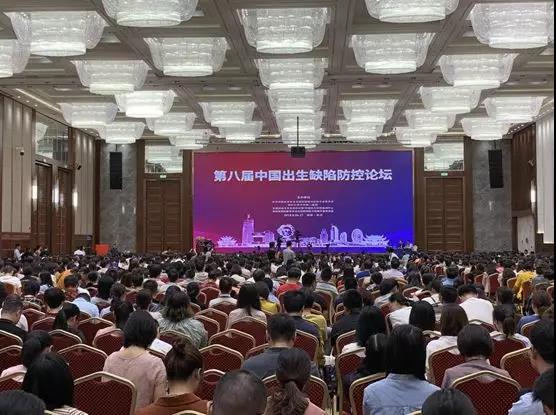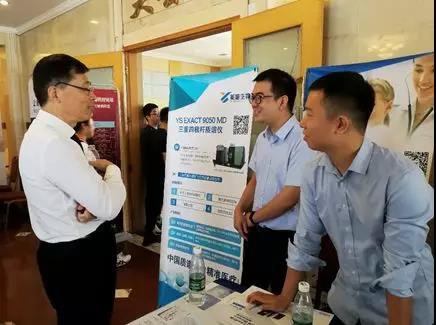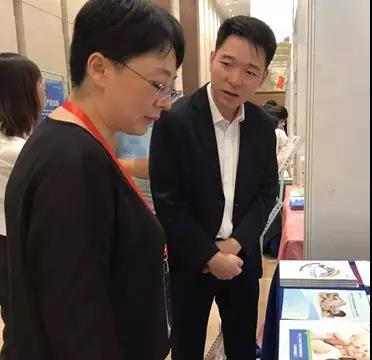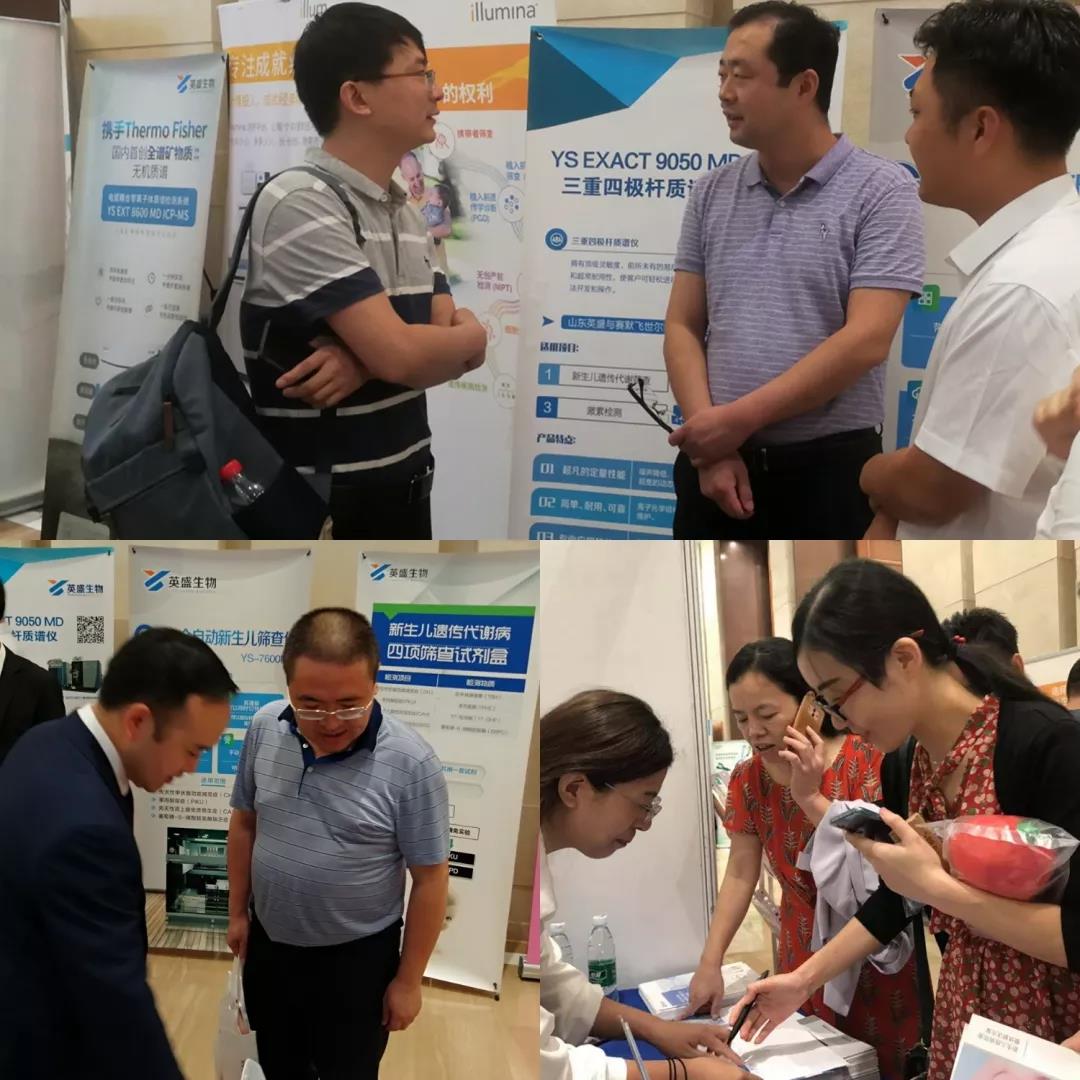



From September 26 to 27, 2019, the Eighth China birth defects prevention and Control Forum was held in the beautiful Changsha. At the beginning of the conference, Yi Lucy, deputy director of Hunan Health Committee, Zhang Lingli, Deputy Secretary General of Chinese Preventive Medicine Association, Qin Geng, director of the Department of women and children of National Health Committee, delivered speeches respectively, announcing the official start of the conference, which consists of a main venue and eight sub venues, invited leaders of relevant departments and nearly 100 experts and scholars at home and abroad to give special lectures, focusing on the prevention and control of birth defects and other fields. Academic exchanges were launched, attracting thousands of experts and scholars.

Yingsheng biological Co., Ltd. and "one stop solution for neonatal genetic and metabolic disease screening" have attracted wide attention since their debut. In the "newborn genetic and metabolic disease screening" branch, Yingsheng biological introduced the clinical application of mass spectrometry accurate detection in the field of birth defects, which was recognized by many experts attending the meeting. Wang Zhiguo, deputy director of clinical test center of national health and Health Commission, in the report "interpretation of screening technology for neonatal diseases by tandem mass spectrometry", used data to describe the layout of domestic clinical mass spectrometry manufacturers in China, among which Yingsheng biology was also listed. At the same time, Yingsheng biological booth also attracted the attention of many experts and scholars. Professor Gu xuefan from Xinhua Hospital Affiliated to Shanghai Jiaotong University Medical College, Professor Zhu yunning from Zhejiang obstetrics and gynecology hospital and other experts visited the booth, and conducted in-depth exchanges on mass spectrometry platform, newborn genetic metabolic disease screening, deafness gene detection and other aspects.



In China, birth defects such as neonatal deafness and genetic metabolic diseases have become serious public health problems. The government and the whole society have made great progress in comprehensive prevention and control. In 2018, the national health and Health Commission issued and implemented the national comprehensive prevention and control plan for birth defects; in 2019, the health China action Promotion Committee issued the health China action (2019-2030), which listed "maternal and child health promotion action" as one of the 15 major actions. In fact, birth defects need comprehensive prevention and control, precise prevention and control, and the whole society should share responsibilities, including strengthening policy protection, improving laws and regulations, implementing prevention and control measures, promoting primary prevention as a whole, standardizing secondary prevention, and continuously strengthening tertiary prevention, so as to constantly improve the level of security.
Genetic metabolic disease (IEM) is a rare disease, although some patients can survive to adulthood, but the mortality and disability rate of this kind of disease is high, and there are many kinds. For this kind of disease, we should make early diagnosis, reduce misdiagnosis and early intervention. With the clinical application of tandem mass spectrometry in pediatrics, many difficult and serious diseases have been clearly diagnosed. According to foreign market research reports, in 2015, the global mass spectrometry market achieved an output value of US $4.948.3 billion. From 2016 to 2022, the market size will increase at an annual compound growth rate of 8.1%. In 2019, the market size is expected to reach US $816.6 million. With the popularity and increasing demand of neonatal genetic and metabolic disease screening, the technology has gradually become the focus of technology, with its advantages of high selectivity, high sensitivity, high specificity and rapid detection.
Tandem mass spectrometry has been used to screen metabolic diseases of newborn since 2005 in the United States. Subsequently, new screening institutions in Australia, Europe and other developed countries and regions have added tandem mass spectrometry technology to expand the screening of disease species, China is no exception. However, up to now, due to the relatively expensive price and complex technical application of tandem mass spectrometry screening instrument, China can only carry out tandem mass spectrometry screening in some regions with better economic development and more developed medical technology. By 2018, 126 of 262 new screening institutions in China had carried out tandem mass spectrometry detection, and the screening rate of newborn tandem mass spectrometry was less than 25%. This fully reflects the shortage of high-quality medical resources and the unbalanced distribution of medical level in China. Because of this, the state actively promotes the hierarchical diagnosis and treatment system, sinks the high-quality medical resources to the grass-roots level, and all walks of life are also actively exploring. With the active planning of the application of tandem mass spectrometry in newborn IMD screening research in various regions in China, this technology will be gradually promoted nationwide.